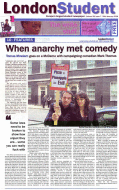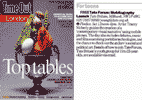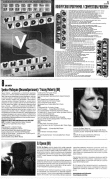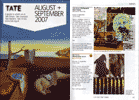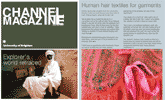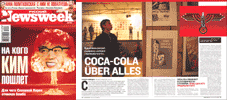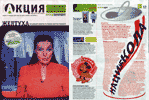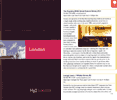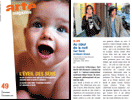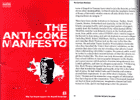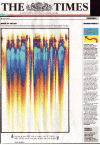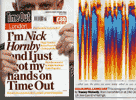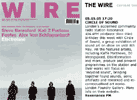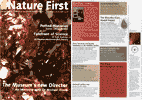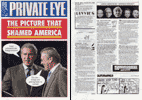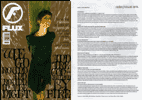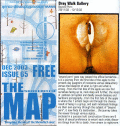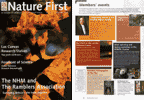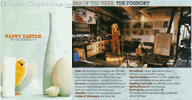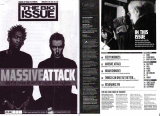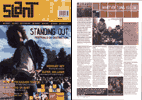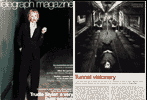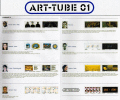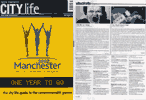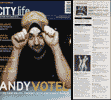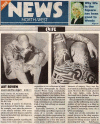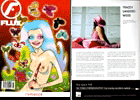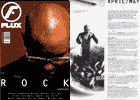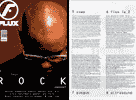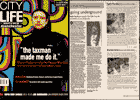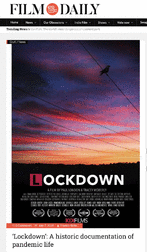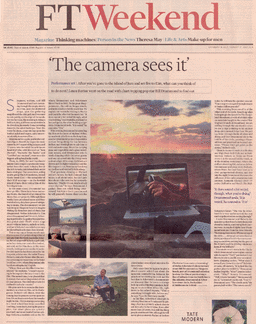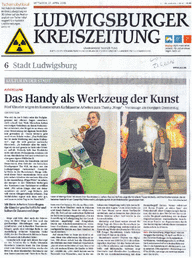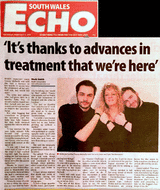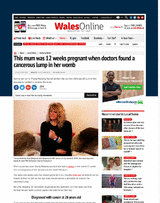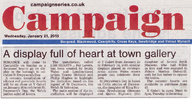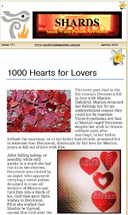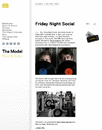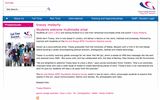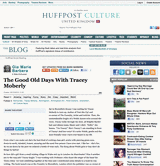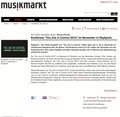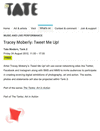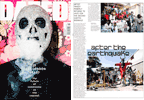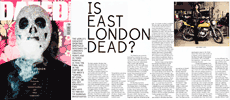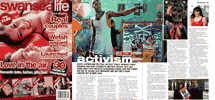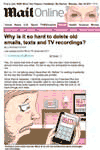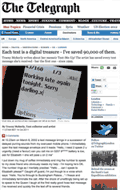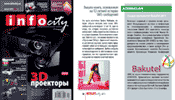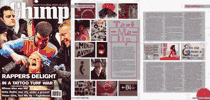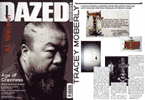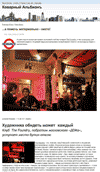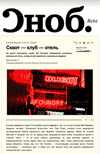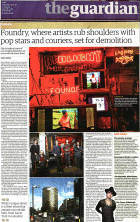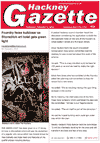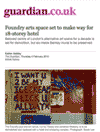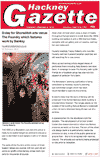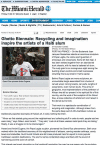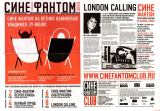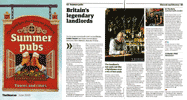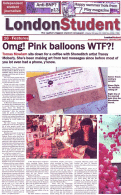[press]
[<<<] [>>>] click on image to enlarge

© tracey moberly 20080421.50LndnStudnt.2.800.jpg
LondonStudent
Tracey Moberly
Not to be sniffed at: Cocaine's invisible hitchhiker
We all know banknotes have traces of cocaine but how many of yours have hepatitis C? Tomas Mowlam finds out.
21 April 2008
In the Foundry art gallery down Old Street, the aftermath of the irreverent Late Late Breakfast Hour broadcast is being tidied up. Amongst the snaking cables, upturned chairs and crates of beer ready to be packed away, two women are talking about a subject that is anything but light, off the wall or irreverent: the silent epidemic and killer-by-denial that id Hepatitis C.
A weak, midday sunlight is just pushing through the door, highlighting the drifting swirls of dust, and Gemma Peppe, the Campaign Manager for the Hepatitis C Trust, is explaining how she first found out she had Hep C.
'I was living a very hedonistic lifestyle working in the music industry, but I went on this six-month health kick and still felt terrible all the time.' Gemma realised something was terribly wrong and broke down in tears in the Royal Academy, and hearing her describe sitting there, head in hands, makes you realise the exhaustion and depression that Hep C brings.
But how did she not realise earlier? 'A lot of people mask their symptoms with drinking. I did it too - I'd just think I had a really big hangover.'
At this point, Tracey Moberly, owner of the Foundry and artist working with the Trust's What Not To Share campaign, adds 'you can get symptoms after five or fifteen years.' And therein lies the danger.
If you're in a place in your life when you're taking lots of coke or sharing needles, then chances are drinking a fair amount too; any symptoms and feelings of lethargy and illness that you do get can be easily passed off as one drink too many.
As a mix of artists and prospective comedians move through the bar, organising exhibition spaces and stand-up slots, Gemma outlines the dangers of the virus and problems of getting people to take notice; the stigma surrounding Hep C means that a lot of the people who 'don't have symptoms simply don't believe it and live in denial.'
And after a night of hitting it hard, the last thing many people want to consider is that they could've snorted a line with someone who has Hep C. Most people know of the dangers of sharing needles, but how can passing around a bank note be potentially fatal?
The nasal epithelium at the top of the nose, where blood vessels are close to the surface of the skin, regularly releases blood when you sneeze or blow your nose hard, for example.
Small specks of blood lie dormant in the nose, and can be picked up on the end of a note. So when you share the banknote to snort the coke, you could be snorting someone elses infected blood too.
The virus can stay active outside the blood stream for up to three months and three quarters of those infected with the virus will go on to develop chronic Hepatitis.
Although not everyone with Hep C shows symptoms, it can make you chronically exhausted and nauseous - like a bad case of the flu, again and again and again. Exacerbated by alcohol, one in five of those who are positive will suffer cirrhosis of the liver and even possible liver failure.
How can passing around a banknote be potentially fatal?
It's an exclusively blood-borne disease so even sharing razors and toothbrushes can pass it on. Rates of sexual transmission are low, although anal sex or sex with someone who is also HIV positive increases the risk.
The risks are real, especially if you share drugs, so it's worthwhile getting tested if you've been doing something that could put you at risk of contracting Hep C.
The NHS claim little over 200,000 are infected with the virus in Britain, but this is however a massive discrepancy in the numbers. The Hep C Trust says that this government figure has been underplayed and that the real total is closer to 500,000.
Some estimates even put it as high as 75,000 because its instance is uncharted in immigrant communities, where people may have previously had unhygienic dental or medical procedures.
To those that have no symptoms and are living in denial, Gemma's 2006 film 'Louie, me and Hepatitis C', charting her treatment is a harrowing wake-up call. Tracey said the film knocked her over leaving her on the floor.
The film shows quite how brutal and debilitating treatment for Hep C is. The regular injections of Pegylated Interferon Alfa and Ribavirin wipe you out totally, inducing 'flu-like symptoms' according to the NHS website.
Flu-like symptoms, though, doesn't do justice to the utter exhaustion , depression and hair-loss
that the film shows the treatment to cause. Stomach pains and raging anger are also side effects of the Ribavirin.
The earlier you cn catch the disease the better, because the more likely you are to respond to the drugs. Under the NHS treatment scheme those who don't respond to the drugs after a review period can't undergo further treatment, leading to an even worse anxiety over this period.
An Old Street artist and a charity make an unusual alliance, but cocaine is prolific in the art world, as well as the media. Three years ago when large numbers of people Tracey knew were being diagnosed with Hep C, she felt she had to draw attention to it, and so she made solid-silver cocaine straws for her exhibition, Star Spangled Sinners.
Last ear the Hep C Trust commissioned her to make the straws with a selection of lines from her poem (also called Star Spangled Sinners), because says Gemma 'it fitted perfectly with what we are doing.'
The silver straws obviously represent the note or straw used to take coke, and are engraved with their very own dangerous line of poetry such as 'new designer disease'.
A piece of jewelry engraved with these words is an immediately affecting work. Despite their beauty, Gemma is keen to point out that neither the straws nor the Hep C Trust encourage drug-taking.
'They're certainly quite a controversial piece of art, but they're ambiguous and question peoples behavior.' She explains that they question the destructive behavior of taking coke - exactly the aim of the What Not To Share campaign.
Gemma laughs at the idea of the straws becoming as common as the breast cancer pink ribbons, and says it will never be appropriate for a little old lady to wear one. She would however, like the Hep C ribbon to become as popular, to help beat the stigma and ignorance surrounding the disease that says 'it's only a junkies' problem'.
Lots of people can't tell their families or places of work,' says Gemma and although the campaign 'is aimed primarily at young people to stop individuals engaging in risky behavior,' she's keen to assert that it's not the only aim. The first step to get people talking and get Hep C normalised 'in [the] same way that HIV has been normalised.'
It's all part of a wider effort, including a 'series of t-shirts which are fantastic,' says an enthusiastic Tracey. it may seem a minor point, but if people wear the shirts, which feature a rolled up £50 note and the words 'What Not To Share' out in public, it helps break the taboo and silence surrounding Hepatitis C.
Tracey has already got her family involved: 'my boys wear them all the time - they think they're fantastic, they're their main shirts.' Why? 'I hate drugs ... I want them to educate [my sons] about what's out there.'
Gemma is proud of what the campaign has achieved: 'we've been in all the national press, our postcards are in bars all around the country, it's a national campaign.' She add, '[we have had] gigs and events all over the country, we had manumission in Ibiza produced these dollars that said 'Share the Wealth and Not the Disease.'
The government has gone some way to try to combat this potential nightmare for the NHS, but the ignorance of most people to the dangers testifies to low public awareness.Gemma believes that the silence from official sources is for a far more cynical reason.
'The government did a fantastic job for AIDS' and it was a 'huge success for the Thatcher government but it didn't win them votes.' Fighting a disease that is viewed by many of the electorate as just deserts for junkies, it seems it is not viable election campaign material. But what will happen when the silent epidemic becomes a very loud one?
It's got the potential to bring the health service to its knees, it's a huge and serious problem, states Gemma. Hep C at it's worse brings on end stage liver disease, cirrhosis and then failure. A transplant sets the health service †back somewhere in the region of £40,000, making it a pricey problem to deal with.
Celebrity involvement has given What Not To Share a great chance of breaking through the stereotypes and stigma surrounding Hep C, but is there not still an assumption that coke is a middle-class drug?
'Taking it these days you're more likely to find yourself on an over spill council estate,' says Tracey, and Gemma quickly agrees: 'as much as it is the chattering classes sitting around and taking a few lines of coke after dinner, you've now got 15 year old kids doing it.'
Cocaine is getting cheaper - Drug Scope's 2007 survey found dealers in Nottingham offering low-quality coke for as little as £30. According to last year's British Crime Survey (BCS), cocaine use has generally 'remained stable' over the past decade, but amongst the youngest age group (16-240 it has almost doubled to six percent.
The survey also found that nine per cent of all 16-24 year olds questioned had used cocaine in the last month, and that those who regularly attended nightclubs were three times likely to have taken it. No surprise there then.
Anecdotal evidence certainly suggests that coke is increasingly cheap and popular with students. 'People say that you can still get a gram for £40,' says Joe, an ex-UCL student who dropped out because of his coke problem, 'but that is not entirely true. More often than not you'll get 0.75, or even less. Still, it's cheaper than it used to be, and easy to get hold of aswell.'
'The general rule is that you can get your coke from the same guy that sells you your weed,' says Joe. 'And if you're lucky, you'll get offered to share with someone on most nights out.'
Talking with Joe is educational. It's ruined my life, pure and simple,' he says. 'You just sort of wake up one morning and realize that you're a grand into your overdraft and that you haven't had a proper meal for a month.'
Joe got lucky - he's clean now and doing ok. Although he had to drop out and work to pay off his debts, he found it easier to kick it away from uni and with the support of his family.
The destructive human cost of coke, however, is not just felt on the streets of London, but across the globe. In Latin America it's used to fund guerilla armies such as Colombia's FARC. Cocaine dollars bring with them endemic corruption; they are a tempting prospect for street kids, poorly paid police and civil servants and politicians alike.
Corruption impoverishes the life of all citizens, taking away the chance for n honest legal system, rendering bribed judges and contract killings a normal occurrence.
Last year, police in the Mexican tourist resort of Acapulco fought the Gulf drug cartel, which was also fighting its own inter-gang conflicts with the Los Zetas and Siniola gangs.
Gun battles in the street and hit squads became common news. One hitman from the GUlf cartel, who was captured by other gangs, was paraded on YouTube and then beheaded. It's a little slice of Basra on the sunny Pacific coast - all for cocaine smuggling routes.
Efforts to stamp out the local cocoa production at the root of the problem often do more harm than good; the Whitehouse organised 'Plan Colombia' and spent $4.7 billion trying to eradicate cocoa plants from the area.
The defoliant sprayed from planes was estimated to be 104 times as toxic as standard weed killer, and the poison has caused untold damage to the people and the natural environment. Ecuador is now even suing Colombia in The Hague for the damage done when pesticides drifted across the border.
For the farmers, cocoa is the only crop worth growing; banana prices have fallen 40% in the last two years despite Fairtrade's best efforts and sugar cane prices have also fallen. The cartels, too, pay better wages for tending the plants and making the cocoa paste. Better at least than the legitimate companies do for cutting cane or picking bananas.
The jungles of the Latin America may seem remote, but drugs are wrapped up with human misery all over the world. To make a difference in the UK, the What Not To Share Campaign can bring the message home to an increasingly younger audience of cocaine users.
The drafting in of celebs and trendy bands may help shake a little of the glitz off the idea of a little line of charlie, as does talk of infected blood and nasal epithelium, but real government action is is also needed to educate people about the dangers and to put in a concrete timetable (and money) for nationwide treatment of Hep C.
Procrastination is the worst choice, both for the NHS and all those who may already be suffering.
See whatnottoshare.com or hepctrust.org.uk for further details. You can also buy Gemma Peppe's film 'Louie, Me and Hepatitis C' from these websites.
Factfile: Hepatitis C
discovered in 1991
7 major virus strains
Estimated 200 million people infected worldwide
The virus is not confined to the liver but can spread to other areas of the body including the immune syaytem and the brain.
Symptoms can occur almost immediately or take decades.

